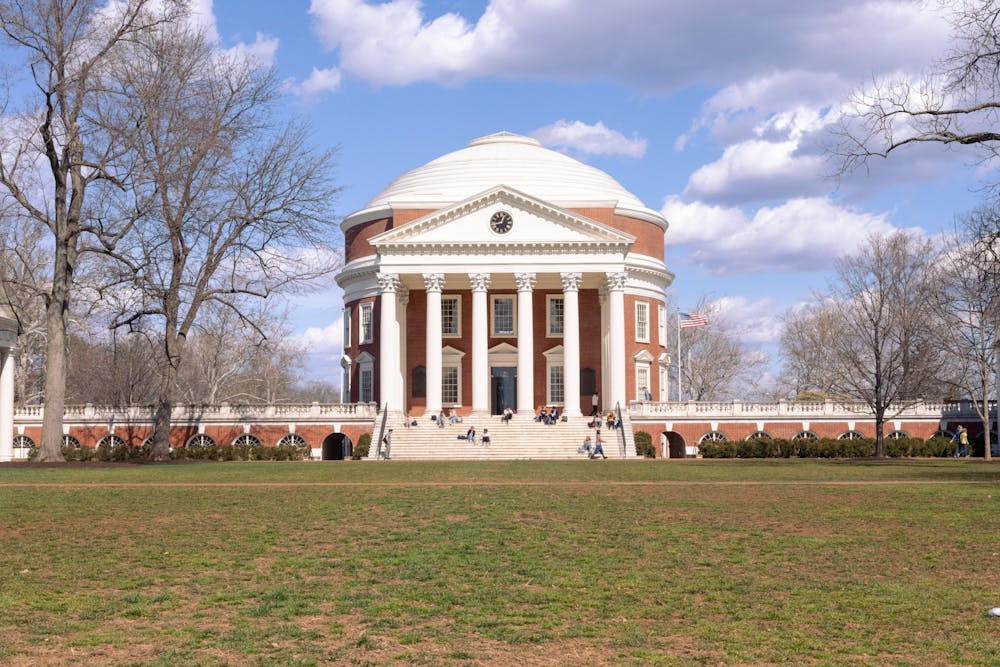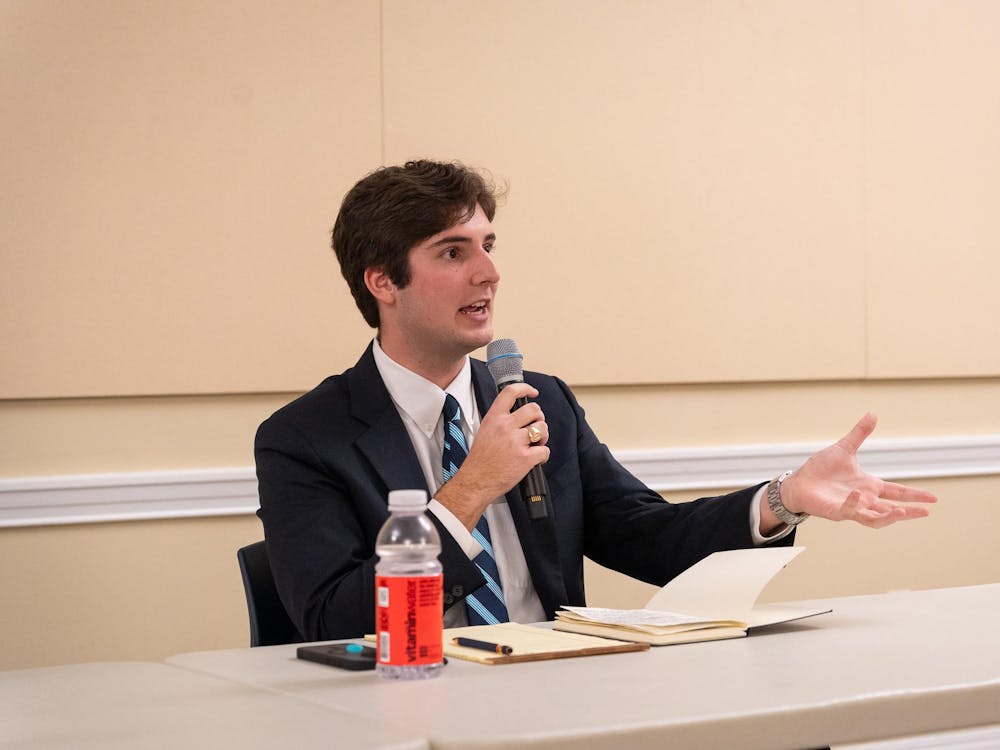Diversity, equity and inclusion are three relatively straightforward words. We see them a lot here at the University. We hear them a lot in conversations with leadership and peers. More recently, they have appeared in articles about politics in higher education — last month, the New York Times published an article outlining the Jefferson Council’s campaign against diversity, equity and inclusion initiatives on Grounds. Even the Supreme Court is positioned to weigh in, as a decision to outlaw affirmative action could undermine diversity, equity, and inclusion efforts across the country. Today, what we argue is simple — diversity, equity and inclusion are fundamental to our success as a society. These efforts are not “anti-excellence” or "threatening.” They are necessary and must be practiced responsibly by the University to create a better future for students.
We define diversity, equity and inclusion as three aspects crucial to combating oppression — increasing and embracing human differences, practicing just policies that put people on fair footing and fostering a sense of belonging and respect for all people. DEI efforts are a set of practices that companies, government agencies and universities use not only to protect and uplift members of their institutions, but also to actively deconstruct systemic barriers to success created by our long-standing history of oppression and discrimination. It says a lot about our country that DEI has become so politicized. This politicization has the potential to undo meaningful efforts to redress our fraught history and create positive change within our communities.
While DEI is commonplace at many institutions of higher education, it is uniquely necessary here at the University given its legacy of racism. Almost six years ago, the infamous “Unite the Right” rally forced the University to reckon with the hate and vitriol that was instrumental in its founding. The problematic response to the rally coupled with our alumni’s involvement in the proceedings made both administration and students question how far we have actually come. In the aftermath, the University enacted a sweeping review of its core institutions — putting DEI at the forefront of this discourse.
DEI efforts at the University include everything from committees on employment equity and diversity to the Office for Equal Opportunity and Civil Rights to community celebrations for Martin Luther King Jr. Day. While we recognize the importance of these initiatives, their tangible impacts are not necessarily visible to students. Between 2020 and 2021, the University spent an additional $2.8 million on DEI initiatives. That increased spending has not come with significant outcomes. The Black student population, for example, has only increased by 0.3 percent — a mediocre result given the amount of resources devoted to these efforts. Students — and critics of the University’s investment in DEI efforts — want to see where this money is going.
The Jefferson Council has rightly questioned the impact of the continued spending increases on DEI efforts. But the solution is not to abolish DEI — it is to refine our efforts to increase the efficacy of these practices. Many of the new positions created from DEI efforts are described with flowery, politically correct language that do not clearly convey what DEI employees do. The descriptions for the Academic Deans and Directors for Diversity and Inclusion, for example, state that they collaborate on “strategic inclusive excellence planning.” It is not remotely clear to us what that means in practice. While we admire the University’s efforts to build a strong foundation for future DEI efforts, politically correct language on a website is not tangible progress that positively impacts marginalized communities.
Instead of mincing words, we should be taking clear, deliverable action. The University has outlined several DEI initiatives that it plans on implementing in the near future. Most of the long-term goals are still in the exploratory phase. Even still, examples of good-faith DEI efforts that have already been completed or implemented include committing $7 million toward the Carter G. Woodson Institute’s postdoctoral fellowship program that studies the African diaspora, reviewing admission statistics to ensure the student population represents the Commonwealth and the more long-term goal of doubling the number of “underrepresented faculty” by 2030. The University may not yet have the most convincing results to show in defense of their DEI efforts, but there is a concerted effort to address disparities that exist at this institution. We must give these sorts of efforts the time, attention and resources necessary to ensure their impact is felt on Grounds and in the Charlottesville community.
The New York Times article about the Jefferson Council’s war on DEI posed an important question — what should a university look like? After centuries of policy designed to exclude minority students at the University, students have had enough. Spending money on DEI is merely an attempt to bring these marginalized voices to the table, creating a University that looks and feels like Virginia. The Jefferson Council says they are concerned about a “woke regime” and a more statistically representative University. We students are concerned about a past of racism that has and continues to threaten the well-being of the diverse students who live and learn on Grounds. We students are paying tuition dollars to receive the education we want. It is clear who the real stakeholders are — and we are defending DEI.
The Cavalier Daily Editorial Board is composed of the Executive Editor, the Editor-in-Chief, the two Opinion Editors, their Senior Associates and an Opinion Columnist. The board can be reached at eb@cavalierdaily.com.







